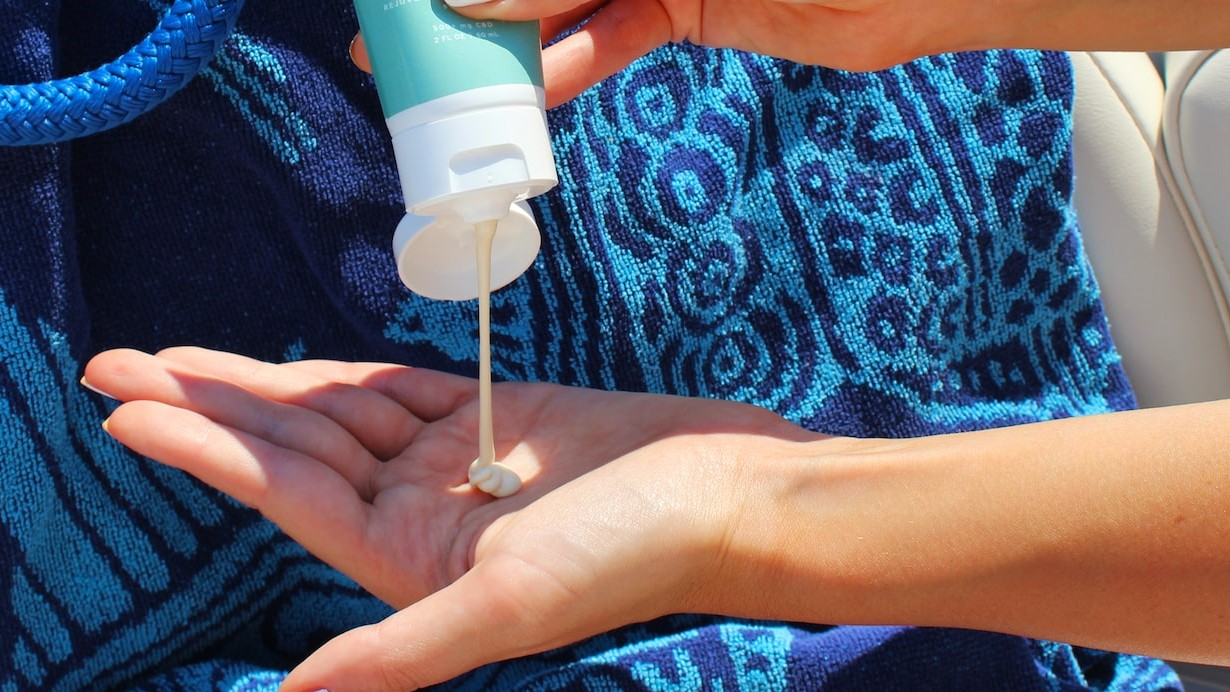Formulate user Emma would like some sunscreen advice:
I have always used very expensive sunscreens that have an SPF of 50-70. Does that actually do anything? My dermatologist says that a higher SPF isn't always that much better. He says I should use a minimum of SPF 30, and from there it doesn't matter really what the SPF is. This is really confusing to me. What is the actual difference between a sunscreen with an SPF of 30 vs a sunscreen with an SPF of 50? And if there isn't a real difference how can I actually protect my skin better?
Thanks for writing, Emma!
SPF on sunscreen stands for sun protection factor. This is a measure of sunscreen's ability to protect your skin from harmful rays from the sun. Generally, the higher the SPF, the more protection your skin will have when the sunscreen is properly applied. Sunscreens with an SPF of 10 provide a smaller amount of protection than, say, a sunscreen with an SPF of 30.
However, the SPF numbers on sunscreen are a little misleading. While sunscreens with a higher SPF provide additional protection from the sun, they don't make too much of a difference after a certain point - if you think of it as a graph, the protection doesn't increase at the same rate as the SPF. Instead, it pretty much plateaus gradually after SPF 30.
Dr. Elaine Kung, dermatologist and founder of Future Bright Dermatology, explains: "SPF 30 sunscreen only allows 1/30 of the sun's UVB rays to penetrate your skin. That means it blocks about 96.7% of those harmful UVB rays. SPF 50 sunscreen only allows 1/50 of the sun's UVB rays, blocking 98% of them. So, SPF 50 is more protective than SPF 30, but only by about 1%."
So while a higher number, like above 50, might seem appealing on sunscreen packaging, it likely won't make too big a difference for the quality of your sun protection. If you apply a sunscreen with an SPF of 30 it will only be 1% less effective than a sunscreen with an SPF of 50. Compare this to the difference between SPF 10, 15, and 30- sunscreens with an SPF of 10 block 90% of UVB rays, sunscreens with an SPF of 15 block 93% of UVB rays, and, as previously stated, sunscreens with an SPF of 30 block almost 97% of UVB rays.
And as the SPF gets higher than 50, the amount of increase in protection continues to decrease. While SPF 50 blocks 98% of UVB rays, SPF 100 blocks 99% of UVB rays, resulting in an increase of only 1%.
So a sunscreen with an SPF of 30 that blocks 96.7% of UVB rays is clearly a better choice than a sunscreen with an SPF of 10 that blocks only 90% of UVB rays. However, a sunscreen with an SPF of 50 that blocks 98% of UVB rays isn't much more useful than a sunscreen with an SPF of 30 that blocks 96.7% of UVB rays.
In sum, there isn't really that much difference between the effectiveness of an SPF 30 sunscreen when compared to an SPF 50 sunscreen.
Beyond SPF: How can you get more protection out of your sunscreen?
As we've discussed, going for a higher SPF might not actually provide much additional protection from the sun. So if you don't choose sunscreen based on if it has an SPF of 50+, what factors should you go off of when choosing a sunscreen?
Use a sunscreen that you actually like
For starters, it's helpful to choose a sunscreen that you're actually going to want to put on your skin. Bare skin is vulnerable to 100% of UVB rays - even going out with SPF 5 is better than going into the world without any sun protection at all.
Find a sunscreen that you enjoy putting on your skin, this way, you won't purposefully forget it in the morning or try to avoid it. It helps to pick one out that feels good on your skin, is dry to the touch once applied, doesn't leave a white tone on the skin, and even smells nice (not all sunscreens have to smell coconutty! You can find sunscreens at a variety of price points with different fragrances.)
Go for a mineral sunscreen instead of a chemical sunscreen
Dr. Kung recommends that her patients utilize a mineral sunscreen rather than a chemical sunscreen, regardless of SPF as long as it is higher than 30.
"Mineral sunscreen (Zinc and Titanium sunscreens) are particularly helpful to keep our skin cool beyond just protecting our skin from sunburns. Mineral sunscreens reflect the heat and energy from UV rays away from the skin, thereby reducing skin temperature," she shares. "Research suggests that zinc oxide and titanium dioxide contain sunscreens (a.k.a. mineral/physical/inorganic sunscreens) are far better at protecting the skin from longer UVA rays and visible light than conventional chemical sunscreens."
Try out a tinted sunscreen for extra protection
The problem with mineral sunscreen is that it often leaves a white, blue-ish cast on the skin. While this cast is a good thing in that it shows that the sunscreen is working and has formed a visible barrier between your skin and the sun, it's a bad thing in that it's not cosmetically appealing - no one wants white sunscreen skin!
This problem goes away if you use a tinted sunscreen. Tinted sunscreens are a type of mineral sunscreen that also gives your skin some limited coverage, similar to a very sheer foundation. And that's not their only benefit, either. "Tinted sunscreens have been shown to be more effective in protecting our skin from both UV and blue light," shares Dr. Kung. "My personal preference is to use a tinted sunscreen with a CC cream. I find that it blends with my skin tone (I am skin type IV) without leaving a white cast."
Reapply regularly
Many of us pat ourselves on the back for applying sunscreen before makeup when we get ready in the morning. Unfortunately, this isn't enough - even after you've applied your makeup, you'll still want to put on more sunscreen later in the day. "I often suggest putting sunscreen on as the last step of a beauty routine. Sunscreens are so well formulated now that many of them blend well with makeup," shares Dr. Kung. So if you're in the market for a new sunscreen, go for one that you can layer over your makeup in the middle of the day. Your skin will thank you for it.
Not willing to reapply sunscreen in the middle of the day? No problem - you can touch up your makeup with a different type of product that contains SPF. Per Dr. Kung: "Many makeup products such as primers, foundations, and CC creams often contain titanium oxide and iron oxides." So check the bottle of your favorite foundation, and see if it's got an SPF on the label.
Wanna learn more about the world of skin and hair care? Here's your next read:
Frizzy Curly Hair Care 101
How to defrizz your curls and get 'em back into shape!
Hot Rollers Vs. Curling Irons
What's the difference between hot rollers and curling irons?
Difference Between a Mole and a Freckle
What's the difference between a mole and a freckle?
Moisturizer vs Lotion: What's the difference?
Can you use body lotion on your face?
Tips For Washing Hair In Hard Water
This is your guide to washing your hair in hard water
Minimalist Hair
Welcome to the wonderful world of minimalist hair
Type of Combs: Materials and Shapes
Your complete guide to picking out a comb


